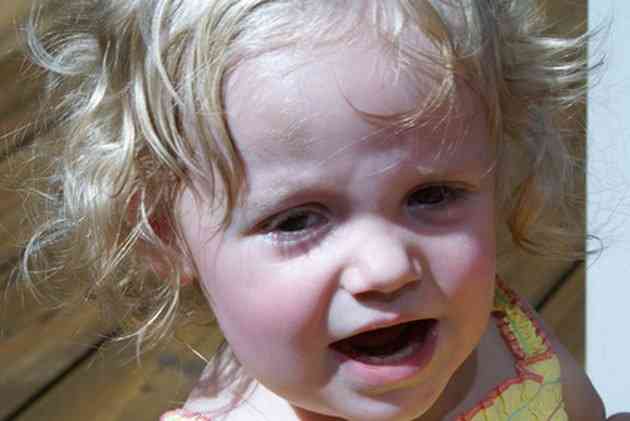How Long Should a Toddler Stay Home After Vomiting?

Vomiting is startling for both a toddler and a caregiver at times. Despite the boldness of the symptom, it isn't usually an indication of a serious health condition. Toddlers can contract a number of highly contagious organisms that cause vomiting. Parents must care for the sick toddler to prevent dehydration, and keep the toddler at home until she is no longer contagious or vomiting.

Significance
Vomiting is one of the body's automatic reflexes that serve the purpose of protecting itself from foreign and potentially harmful organisms, explains DrGreene.com. When a bothersome organism invades the stomach, the body responds by tightening the abdominal muscles and contracting the diaphragm in an attempt to expel the organism from out of the body. The brain also receives messages from the gastrointestinal tract and bloodstream that lead to vomiting as a coping or fighting mechanism.
Causes
Vomiting is surprisingly common during childhood. DrGreene.com explains that viral infections, like rotavirus, are the most common cause of vomiting. Several other illnesses can cause vomiting as a secondary symptom including pneumonia, urinary tract infections, meningitis and appendicitis.
Contagiousness
Most of the infectious agents that cause vomiting, including viruses and bacteria, are contagious. It is best to assume the child is contagious as long as symptoms are present. This can range from a few hours to 24 hours. Vomiting that persists beyond 24 hours requires medical care, states DrGreene.com. Once a toddler is vomit-free for 24 full hours, she is safe to return to normal activities like daycare or school.
Treatment and Prevention
While the child is vomiting, all a caregiver can do is comfort her and help her vomit in the right place. When the vomiting slows or stops, offer the child sips of cool liquids including water or a rehydration fluid. Avoid citrus, dairy, carbonated or sugary drinks. The child may not feel like eating for several hours after vomiting. Begin introducing bland foods when the toddler seems receptive. Good examples are those foods found in the BRAT diet including bananas, rice, applesauce and toast. Salty fluids, like broth-based soups, can help rehydrate the toddler.
To prevent the spread of the infection that caused vomiting, caregivers should wash their hands thoroughly and help the toddler do the same. It is possible for the vomit to contain the infectious organism. Some viruses cause diarrhea in addition to vomiting. This is true of rotavirus, a very common childhood illness that is highly contagious.
Warning
Dehydration can turn vomiting into a serious health concern. A toddler can easily become dehydrated from vomiting for several hours and refusing drinks or food. When the child vomits blood or bile, or reports severe abdominal pain, medical attention is necessary right away. Other symptoms that indicate a serious problem include decreased alertness, dry mouth, reduced or no urine output, darkened urine, excessive thirst, irritability, no tears from crying, excessive sleepiness and skin that loses its elasticity, according to FamilyDoctor.org. A health care professional should evaluate vomiting that is extremely violent or persists over 24 hours.




